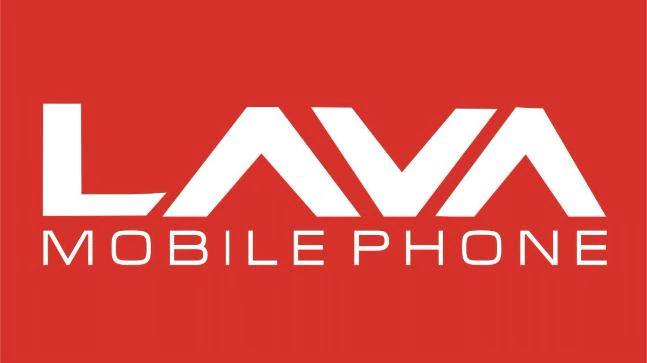After 10 Years, Oyo Finally Turns Profitable! Reports Rs 90 Crore Cash Flow Surplus Before Crucial IPO Launch

Oyo, the Indian hotel aggregator start-up, has finally turned profitable after a decade of operations. The company reported a cash flow surplus of Rs 90 crore ($12 million) in the financial year 2020-21 before its much-awaited initial public offering (IPO) launch. This news comes as a surprise to many as Oyo was struggling with losses and mounting debt for the past few years. However, the company’s efforts to streamline operations and cut costs seem to have paid off. Oyo’s revenue for FY 2020-21 was Rs 3,619 crore ($487 million), which is a 30% decrease from the previous year. The decrease in revenue can be attributed to the pandemic’s impact on the hospitality industry. The turnaround story of Oyo is nothing short of remarkable. Founded in 2013 by Ritesh Agarwal, a college dropout, Oyo quickly became the go-to budget hotel aggregator for millions of travelers in India. However, in recent years, the company faced severe criticism for its business practices and mounting debt. Agarwal took over as CEO in 2020 and vowed to turn the company around. Oyo‘s success can be attributed to several factors. First, the company’s focus on technology and data analytics helped it to streamline operations and reduce costs. Second, the pandemic forced the company to rethink its business model and pivot towards long-term bookings. Finally, Oyo’s IPO launch provided the company with much-needed financial stability. Oyo’s success has not only put it back on the map but has also brought back investor confidence in the hospitality industry. With the pandemic’s impact on the industry waning, Oyo’s IPO launch is expected to be a game-changer for the company. The IPO is expected to value Oyo at $12-15 billion and will provide it with much-needed funds for expansion. CONCLUSION Oyo’s turnaround story is an inspiration to all entrepreneurs who face obstacles and challenges in their businesses. It is a reminder that with hard work, dedication, and a little bit of luck, anything is possible. Oyo’s success is not only good news for the company but also for the Indian startup ecosystem as a whole. OYO share price as of 26/04/23 is Rs 70. You can connect with bharatinvest to invest in OYO’s Share. Get regular updates on OYO share Price , unlisted shares only on Bharat Invest.
Unlisted Market: Worth taking the risk?

The unlisted market, also known as the over-the-counter (OTC) market, is an emerging opportunity for investors looking to diversify their portfolio. In this market, companies that are not listed on any exchange can offer their shares to investors through private transactions. Here are a few reasons why the unlisted stock market is gaining popularity among investors: In conclusion, the unlisted market offers investors an emerging opportunity to diversify their portfolio, access high-growth companies, and potentially see significant returns. It’s important to note that investing in the unlisted stock market comes with its own set of risks, and investors should do thorough research before making any investment decisions. However, for those looking to take advantage of this emerging opportunity, the unlisted stock market may be worth considering. Bharatinvest helps investors invest or liquidate in unlisted shares. Get regular updates on unlisted share price, news, blogs and research.
SEBI Directs Lava International To Refile IPO Papers: What Does It Mean?

Lava International , one of the leading Indian mobile phone manufacturers, was recently directed by the Securities and Exchange Board of India (SEBI) to refile its IPO papers. The move has raised concerns among investors who were eagerly awaiting the company’s IPO. The SEBI’s decision to ask Lava International to refile its IPO papers was based on certain discrepancies in the company’s financial statements. SEBI found that the company had not provided adequate details about its financials in the draft red herring prospectus (DRHP) that it had filed earlier. The regulatory body also found that Lava International had not disclosed certain critical aspects of its business operations. The move has come as a setback for the company, which was planning to raise funds through an IPO to expand its operations and compete with other mobile phone manufacturers in the country. However, SEBI’s decision to ask the company to refile its papers does not mean that the IPO has been cancelled. Lava International can still go ahead with its IPO plans once it has addressed the concerns raised by SEBI. The decision to refile IPO papers is not uncommon in the Indian capital markets. SEBI is known for its strict regulations and scrutiny of IPO filings to protect investors’ interests. SEBI’s directive to Lava International is a reminder to companies that they need to be transparent and provide accurate and complete information in their IPO filings. Investors who were planning to invest in Lava International’s IPO should not be discouraged by this development. Instead, they should take it as a positive sign that SEBI is taking steps to ensure that companies provide accurate information to investors. Once Lava International refiles its IPO papers, investors will have the opportunity to assess the company’s financials and business operations in detail before making an investment decision. CONCLUSION SEBI’s directive to Lava International to refile its IPO papers may delay the company’s IPO plans, but it is a necessary step to ensure that investors are protected. Companies planning to go public should ensure that they provide accurate and complete information in their IPO filings to avoid any delays or regulatory action. Reliance Retail share price as of 04/05/2023 is Rs 133. Get regular updates on LAVA share Price , unlisted shares only on Bharat Invest.
Reliance Retail Acquires Raskik and Toffeeman Partnership with Maliban

Reliance Retail, the retail arm of Reliance Industries, has acquired two Sri Lankan biscuit brands, Raskik and Toffee, in partnership with Maliban, a leading biscuit manufacturer in Sri Lanka. The move is expected to strengthen Reliance Retail’s position in the biscuit and snack segment in the South Asian market. The acquisition of Raskik and Toffee is part of Reliance Retail’s strategy to expand its product portfolio and tap into new markets. The two brands have a strong presence in Sri Lanka and are known for their high-quality products and innovative flavors. Reliance Retail’s partnership with Maliban is expected to bring significant synergies, combining Reliance Retail’s marketing and distribution expertise with Maliban’s deep understanding of the Sri Lankan market. The partnership will also provide Reliance Retail with access to Maliban’s manufacturing facilities, enabling it to leverage the company’s capabilities to produce its own brands in Sri Lanka. The acquisition of Raskik and Toffee also reflects Reliance Retail’s commitment to sustainable growth and responsible business practices. The two brands are known for their ethical and sustainable production practices, and Reliance Retail plans to build on this legacy by investing in sustainable production methods and responsible sourcing of raw materials. In a statement, Mukesh Ambani, the chairman of Reliance Industries, said that the partnership with Maliban and the acquisition of Raskik and Toffee are part of Reliance Retail’s larger vision to become a global leader in the food and beverage industry. He further stated that the South Asian market is a high-potential growth area, and Reliance Retail is committed to tapping into this market with innovative and sustainable products. Conclusion of Reliance Retail Reliance Retail‘s acquisition of Raskik and Toffee in partnership with Maliban is a significant step towards expanding its presence in the South Asian market. The partnership is expected to bring significant synergies, enabling Reliance Retail to leverage Maliban’s manufacturing capabilities and market expertise to reach a wider audience. With a focus on sustainable production methods and responsible sourcing of raw materials, Reliance Retail is well-positioned to become a leader in the food and beverage industry in the region. Reliance Retail share price as of 28/04/2023 is Rs 2400. Get regular updates on Reliance Retail share Price , unlisted shares only on Bharat Invest.
Reliance Retail Ventures into Toy Manufacturing with New Joint Venture

Reliance Retail, the retail arm of Reliance Industries, has announced its entry into the toy manufacturing sector with a new joint venture. The company has partnered with a leading toy manufacturer to create a new entity that will focus on designing, manufacturing, and distributing toys in India. This move is in line with Reliance Retail’s commitment to diversifying its product portfolio and tapping into new markets. The toy manufacturing sector in India has enormous growth potential, and Reliance Retail’s entry is expected to bring significant disruption and innovation to the industry. The new joint venture will leverage Reliance Retail’s extensive distribution network and marketing expertise to reach a wider audience. It will also benefit from the partner company’s years of experience in the toy manufacturing industry, ensuring that the products meet the highest quality standards. According to Mukesh Ambani, the chairman of Reliance Industries, the toy manufacturing industry is a crucial part of the “Make in India” initiative. He further stated that the new joint venture is a step towards creating a self-reliant India by building local manufacturing capabilities and reducing reliance on imports. The partnership with a leading toy manufacturer is also a significant milestone for Reliance Retail, reflecting its growing presence in the Indian market. The company has been expanding aggressively in recent years, with a focus on digital commerce and omnichannel retail. Conclusion Reliance Retail’s entry into the toy manufacturing sector is a bold move that is expected to bring significant changes to the industry. The new joint venture, with its focus on quality, innovation, and local manufacturing, is well-positioned to capture a significant share of the market. With Reliance Retail’s extensive distribution network and marketing expertise, the venture is expected to reach a wide audience and contribute to the growth of the “Make in India” initiative.
Tata Technologies IPO: Why It’s Opportune To Buy Tata Motors Shares Now

The world of investing can be daunting, especially when faced with the decision to buy unlisted shares. However, when it comes to Tata Technologies IPO and buying Tata Motors shares now, the opportunity has never been more opportune. As one of India’s largest automotive companies, Tata Motors has a long-standing reputation for excellence in manufacturing and innovation. But what exactly is an IPO? And why should you consider investing in this pre-IPO company? In this blog post, we’ll delve into everything you need to know about the upcoming Tata Technologies IPO and give you five reasons why it’s time to invest in Tata Motors shares today! What is an IPO? An IPO or Initial Public Offering is a significant event for any company. It’s when the organization decides to go public by offering its shares to the general public through a stock exchange. The proceeds from an IPO can be used for expansion, debt reduction, research and development, or other corporate purposes. For companies looking to grow their business further, going public can be beneficial in several ways. Firstly, it allows them access to substantial capital that they wouldn’t have had before. Secondly, it increases their brand exposure and credibility amongst investors as well as customers. However, going public also has some drawbacks like increased regulatory requirements and pressure from shareholders to deliver consistent financial performance quarter on quarter. An IPO is not just about raising funds but also about reaching new heights in terms of reputation and future growth prospects for any company willing to take the leap of faith! What is Tata Technologies? Tata Technologies is a global engineering and product development company that provides services to various industries such as aerospace, automotive, industrial machinery, and more. With its headquarters in Pune, India, Tata Technologies has a presence in over 20 countries across North America, Europe, Asia-Pacific and the Middle East. The company was founded in 1989 as Tata Group’s internal IT department but later transformed into an independent entity providing design & engineering services for automobiles. Today it offers end-to-end solutions from concept to production-ready designs for companies across several sectors. Tata Technologies is a leading global provider of engineering services that continues to expand its reach through strategic partnerships with other companies while leveraging their strengths to enhance its own capabilities. Why buy Tata Motors shares now? If you’re considering investing in the stock market, Tata Motors shares may be worth adding to your portfolio. Now is a good time to buy Tata Motors shares because of their recent acquisition, Tata Technologies’ IPO. Tata Technologies is an engineering design and product development company that has been operating as a subsidiary of Tata Motors for over 30 years. The company specializes in automotive and aerospace design, which perfectly complements its parent company’s business. By going public through an IPO, Tata Technologies will have more financial resources at its disposal to fuel its growth. This growth could help boost the value of Tata Motors shares in the long run. In addition to this exciting news, there are other reasons why buying Tata Motors shares now could be a smart move. Investing in unlisted shares like pre-IPO stocks can also offer high returns if done correctly. Of course, it’s important to do your own research before making any investment decisions and consult with a licensed financial advisor if necessary. Buying into Tata Motors now gives investors exposure not only to traditional automobiles but also cutting-edge technology developments within one of India’s largest conglomerates – all backed by strong fundamentals and positive industry trends. 5 Reasons to buy Tata Motors shares There are many reasons why investors should consider buying Tata Motors shares, especially now that Tata Technologies is planning to go public through an initial public offering (IPO). Here are five compelling reasons: Firstly, the potential growth of the Indian automotive market is enormous. With a population of over 1.3 billion and growing purchasing power, India represents a huge opportunity for car makers such as Tata Motors. Secondly, Tata Motors has been investing heavily in electric vehicles (EVs) in recent years. This puts them at the forefront of the EV revolution which could eventually replace traditional internal combustion engine vehicles. Thirdly, Tata Group has a reputation for being one of India’s most respected and successful conglomerates. As part of this group, Tata Motors benefits from its strong brand recognition and diversified business portfolio. Fourthly, with low valuations compared to global peers like Toyota or General Motors,Tata motors share price offers attractive value for money with high upside potential making it affordable for unlisted share buyers. Lastly, Tata’s recent restructuring efforts have improved their financial stability. The company has cut costs significantly while improving operational efficiency to boost profitability.This makes it an attractive investment option among pre IPO investments seekers. Overall,Tata Motor shares offer several attractive features that make them worth considering by both retail and institutional investors alike. Conclusion Investing in Tata Motors shares now could be a smart move for investors looking to diversify their portfolio with exposure to the automotive industry. With the upcoming IPO of Tata Technologies, there is potential for growth and value creation that could benefit shareholders. But as with any investment decision, it’s important to do your own research and consult with a financial advisor before making any moves. Investing always carries some degree of risk, so it’s important to approach it with caution and a long-term perspective. Though, Tata Technologies’ impending IPO presents an exciting opportunity for those interested in unlisted shares and pre-IPO investments. And by carefully considering the five reasons we’ve outlined above – strong financials, diversified product offerings, global reach, commitment to sustainability initiatives and strategic partnerships – investors can make an informed decision about whether or not buying Tata Motors shares makes sense for them You can connect with bharatinvest to invest Get regular updates on share price, news, corporate actions.
Government Takes Steps to Address Angel Tax Concerns

The Department for Promotion of Industry and Internal Trade (DPIIT) is working closely with the Finance Ministry to address the concerns of startups regarding the contentious angel tax and fair market valuation, according to a top government official. The Union budget proposal to subject foreign investors to angel tax has raised apprehensions among startups about securing funding. Angel tax is levied on the capital raised by an unlisted company by selling shares to investors above the fair market value. Indian startups, already facing a funding freeze, are worried that the angel tax may further deter foreign investors, as they often sell shares at a high premium based on future growth prospects. The provision, scheduled to take effect on April 1, 2024, remains unchanged in the Finance Bill for the current fiscal year. The startup sector is already grappling with decreased funding, as foreign private equity and venture capital investments in Indian startups dropped to $54 billion in 2022 from $77 billion the prior year. Furthermore, startup deal volume in India reached a nearly nine-year low in February, reflecting weak sentiment within the ecosystem. A government official, requesting anonymity, stated, “There are concerns regarding angel tax coming from startups, and DPIIT is taking it up with the Department of Economic Affairs and Department of Revenue. Calculation of their fair market value (FMV) is different, which is taken internationally and by the income tax department. DPIIT is just trying to get them on the conversation table, tell them that there is a discrepancy and find some solution.” The government is contemplating exempting foreign funds from angel tax compliance, and rules on angel tax are expected to be issued this month, outlining exemptions for select foreign entities that are bona fide investors. The first set of foreign funds likely to be exempted includes sovereign wealth funds such as Abu Dhabi Investment Authority, GIC, and Qatar Investment Authority. This is due to concerns that the potential impact of Section 56(2)(vii)(b) tax could negatively affect foreign investments, which may undermine the government’s infrastructure investment push. The government has previously argued that the angel tax, or Section 56(2)(vii)(b), targets ‘hawala’ transactions rather than startups, and that ending ‘preferential treatment’ for foreign investors would level the playing field since Indian residents are already subject to this tax. However, the industry argues that, in practice, the law affects a significant number of startups and investors. Queries sent to the spokespeople for the Ministries of Commerce and Finance remained unanswered till press time. Anurag Jain, Secretary of DPIIT, said that angel tax would not apply to startups registered with the DPIIT, which currently number around 95,000. Tax experts said that angel tax is applied when the share price assigned to investors exceeds the FMV of the share. The difference is then subject to Section 56(2)(vii)(b), which experts say could lead more startups to consider relocating overseas, as foreign investors may avoid additional tax liabilities stemming from their investment in the startup. In conclusion, the DPIIT and Finance Ministry are actively working towards resolving the concerns of startups regarding angel tax and fair market valuation. The government is considering exemptions for select foreign entities to avoid potential negative impacts on foreign investments. However, startups in India continue to face funding challenges, and the industry is hopeful for a favorable resolution to support the growth and development of the startup ecosystem in the country. You can connect with bharatinvest to invest Get regular updates on share price, news, corporate actions.
Russian Urals Oil : India Retains its Position as the Leading Destination for Imports

India Remains Top Destination for Russia’s Urals Oil Exports, China’s Demand Slows India continues to be the primary market for Russia’s seaborne Urals oil, with approximately 70% of exports heading to the country, according to Reuters monitoring and industry sources. Attractive prices for Urals oil result in good margins for Indian refiners, and term contracts and lower freight rates between Russian and Indian companies are also supporting elevated supplies, as reported by Reuters on Monday. Last month, Russia’s Rosneft and Indian Oil Corp (IOC) announced a supply deal for up to 1.5 million tons of Russian oil (11 million barrels) per month, effective from April 1. Traders noted that Chinese refineries were requesting late April-early May loading cargoes. Approximately 280,000 tons of Urals will be sent to China from the Al-Hoceima ship-to-ship (STS) facility off the coast of Morocco, where the oil was supplied in March. “China is buying Urals, but not as actively as expected,” said a trade source involved in Russian oil trading. “Refiners in other Asia-Pacific countries are also interested, but many are still afraid of sanctions, so marketing is slow,” they added. Urals deliveries to STS facilities in the Mediterranean continue to decline, with no cargoes shipped so far in April. In 2018, Indian oil companies signed an agreement to purchase up to 9 million barrels of oil from Russia’s Rosneft as part of a larger deal worth over $5 billion, which also included joint development of oil and gas fields in Russia and India. In 2019, Indian oil company Nayara Energy (formerly known as Essar Oil) signed a deal with Rosneft to increase its crude oil supplies from Russia, reportedly costing $4 billion. In 2020, India and Russia signed a memorandum of understanding (MoU) to work together in developing India’s strategic petroleum reserves. NAYARA Energy share price as of 15/04/2023 is Rs 200 in the Unlisted Market You can connect with bharatinvest to invest in Nayara Energy Share . Get regular updates on share price, news, corporate actions.
